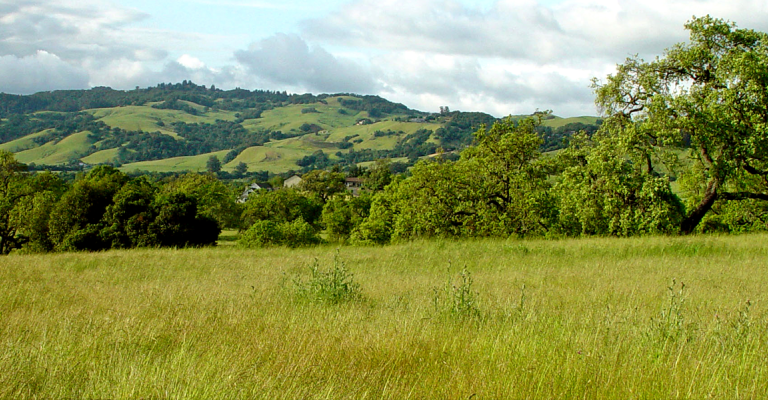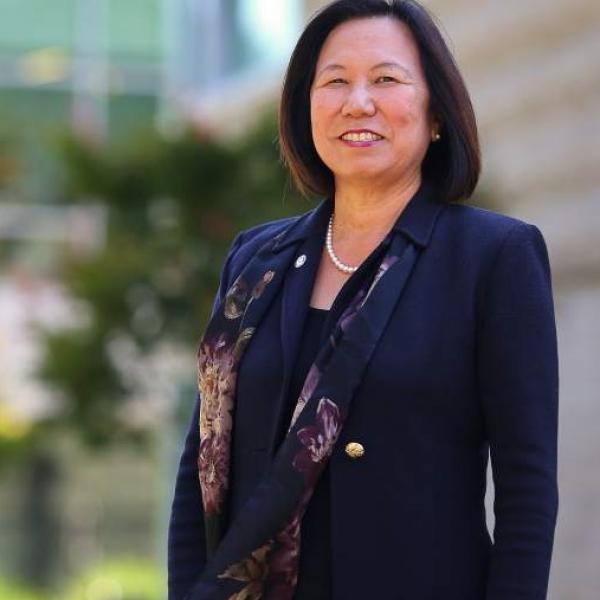Sustainability and Community Engagement
As sustainability is one of the Core Values of SSU’s Strategic Plan 2025, the CCE actively participates in sustainable efforts on campus working towards utilizing community-engaged teaching, scholarship, faculty community service and student service in partnership with community organizations that utilize sustainable methods and practices. In particular, we help faculty develop critical analysis activities that will intentionally assist students in integrating their service experience with the stated learning objectives. We hope to both incorporate and strengthen problem-based learning approaches that focus on sustainability into academic coursework and work towards a more ecologically sound campus.
Service-learning with a sustainability focus has created transformative teaching and learning experiences across the board. One common finding is that students who completed a service-learning course with a sustainability focus “grew in their sense of environmental responsibility” and in their “overall support for a variety of environmental issues” 1. Additionally, learning processes for students are strengthened because “having a community to answer to at the end of the project motivated students to do careful work” 2. Furthermore, this infusion of sustainability and service-learning allows students to graduate feeling better prepared to understand the world they are responsible for 3.
By participating in this significantly enriched curriculum, students are able to hone their problem-solving, analytical, and writing skills, allowing them to make significant improvements in their overall schoolwork. Improving this skill set is also appreciated outside of the classroom, with many students sharing that “this project was the most important factor in their obtaining a job” 4.
Moreover, the community partners strive toward economic, social, and environmental sustainability 5. In fact, most studies show that students are so enthusiastic that they continued working with their class’s community partner beyond the semester or course 6. Such connections are valuable in moving towards better citizens and community engagement overall and maintaining community relationships.
As SSU’s Civic Action Plan/CCE’s Strategic Plan includes a Commitment to Action “that focuses on the environmental, economic, and social justice implications of sustainability,” the Director of the CCE serves on SSU’s Sustainability Executive Committee, which provides recommendations to all campus units with regards to goals, priorities and opportunities for sustainability activities and initiatives at SSU; coordinates sustainability initiatives that engage academics, facilities, and co-curricular programs; seeks funding and implements projects to achieve sustainability goals in accordance to the SSU strategic plan; and convenes working groups to undertake needed reports, summaries, and investigations in the area of sustainability.
1 Eisenhut, A. & Flannery, D. (2005). “Fostering an Environmental Ethic through Service Learning”. California Journal of Health Promotion 2005.
2 Draper, Alison J. “Integrating Project-Based Service-Learning into an Advanced Environmental Chemistry Course”. Journal of Chemical Education. Vol 81, No. 2.
3 Bardaglio, P. & Putman, A. (2009). “Ch 2: Adopting New Leadership Models for Sustainability”. Boldly Sustainable: Hope and Opportunity for Higher Education in the Age of Climate Change. pp 40-41.
4 Acting locally: concepts and models for service-learning in environmental studies, Harold Ward. American Association for Higher Education.
5 Bardaglio, P. & Putman, A. (2009). “Ch. 6: Sustainability, Economic Development, and Community Partnerships”. Boldly Sustainable: Hope and Opportunity for Higher Education in the Age of Climate Change.
6 Fitch, A., Reppmann, A., Schmidt, J. “The ethics of community/undergraduate collaborative research in chemistry”.



